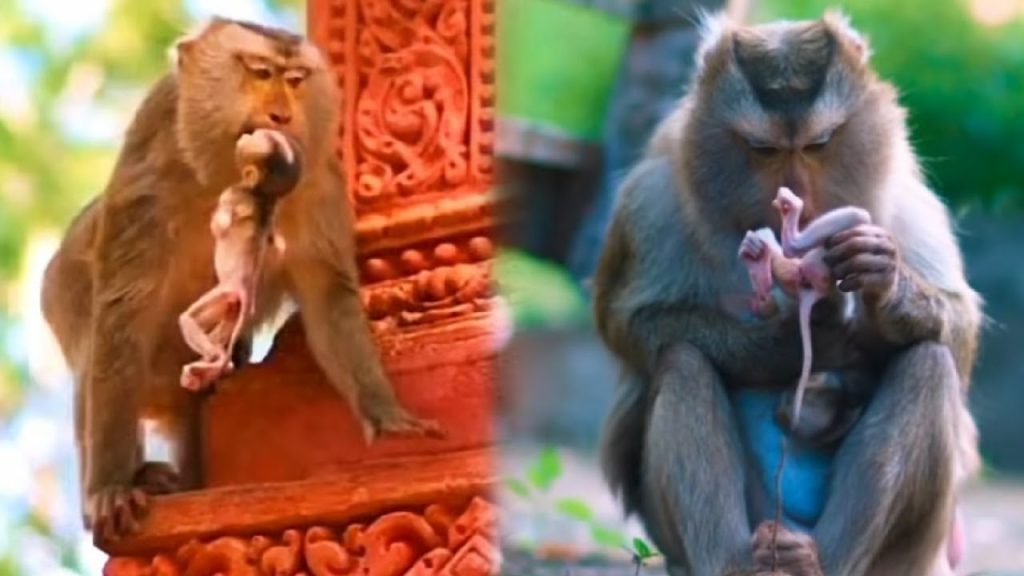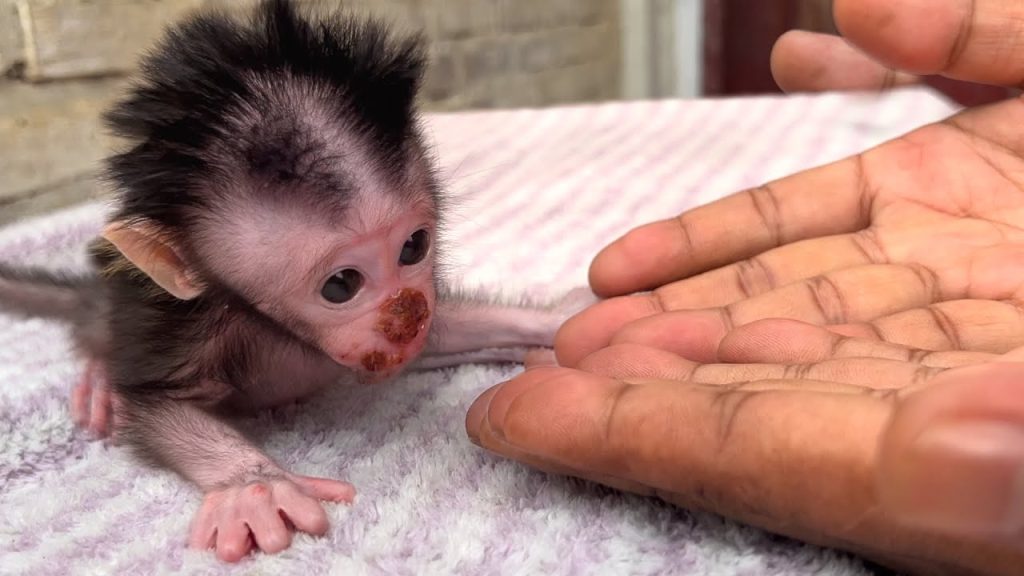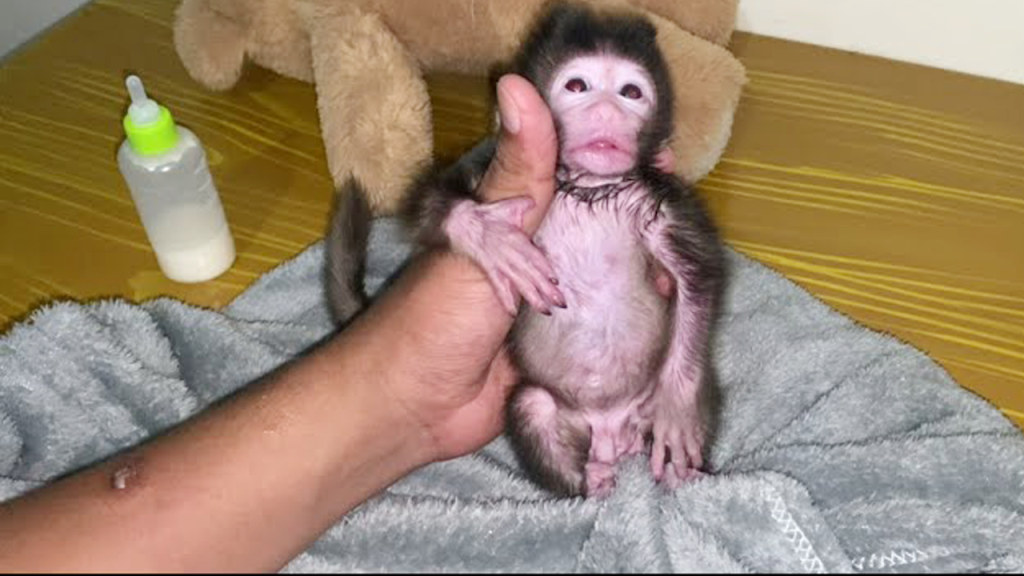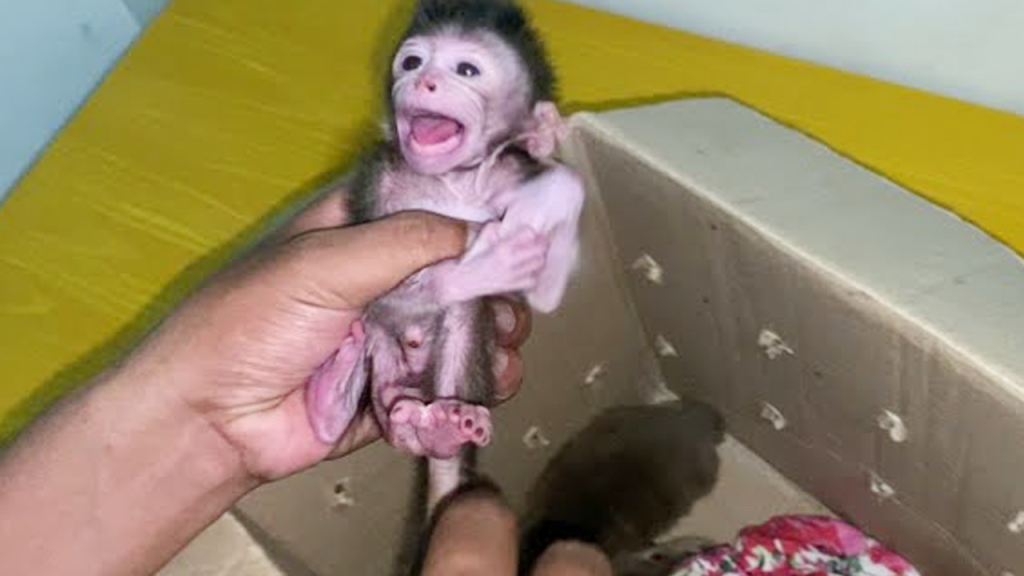
The birth of a baby monkey is usually a moment of joy and renewal for a troop, but in the case of an elderly mother, the story can take a tragic turn. This was the bittersweet reality when an old female monkey gave birth—only to lose her newborn the very next day.
The mother had carried her pregnancy with quiet determination. Her movements were slower than those of younger females, and her fur bore the marks of age—graying patches, thinning texture, and old scars from past conflicts. Yet, when the time came, she displayed the same instinctive care as any mother. In the shelter of a tree’s thick canopy, she delivered her baby, immediately pulling the tiny form close and cleaning it with gentle licks.
The first day was filled with hope. The baby clung weakly but securely to its mother’s belly, its small eyes still closed to the world. She kept it close at all times, shielding it from curious troop members and the chill of the breeze. Although her age meant she was not as strong as she once was, her devotion was clear. She groomed the baby often, offered warmth, and kept her body between the infant and any potential danger.
However, something seemed wrong from the start. The newborn was unusually still, its grip less firm than expected. It nursed only briefly, and its cries were faint. In the wild, survival for newborn primates depends heavily on immediate strength and feeding ability—any weakness can quickly become fatal. The mother, sensing her infant’s fragility, held it even closer, rarely letting go.
By the following morning, tragedy had struck. The baby lay limp against her, no longer breathing. The mother’s behavior changed, but she did not immediately release her child. Like many primates, she continued to carry the lifeless body for hours, sometimes even days, grooming it and keeping it pressed to her chest. This is a common response among monkeys and apes—a sign of both deep attachment and difficulty accepting the loss.
Other troop members approached, some sniffing or touching the infant, but the old mother kept them away. She moved less, staying in shaded areas, occasionally rocking slightly as if trying to comfort her baby.
The scene was a poignant reminder of the emotional depth in primates. Though survival in the wild is often harsh and unforgiving, moments like this reveal a tenderness and grief that transcends species boundaries. The mother’s loss was not just biological—it was emotional, a bond broken far too soon.
Eventually, she laid the baby down and walked away, her movements slow and heavy. Life in the troop would go on—feeding, grooming, and foraging—but for this old mother, the brief joy of new life had turned into the pain of farewell in just one day.
In nature, every birth is a gamble, and for an aging mother, the odds are even steeper. This story is a quiet, somber reminder that while the wild can bring new beginnings, it can also take them away without warning.


